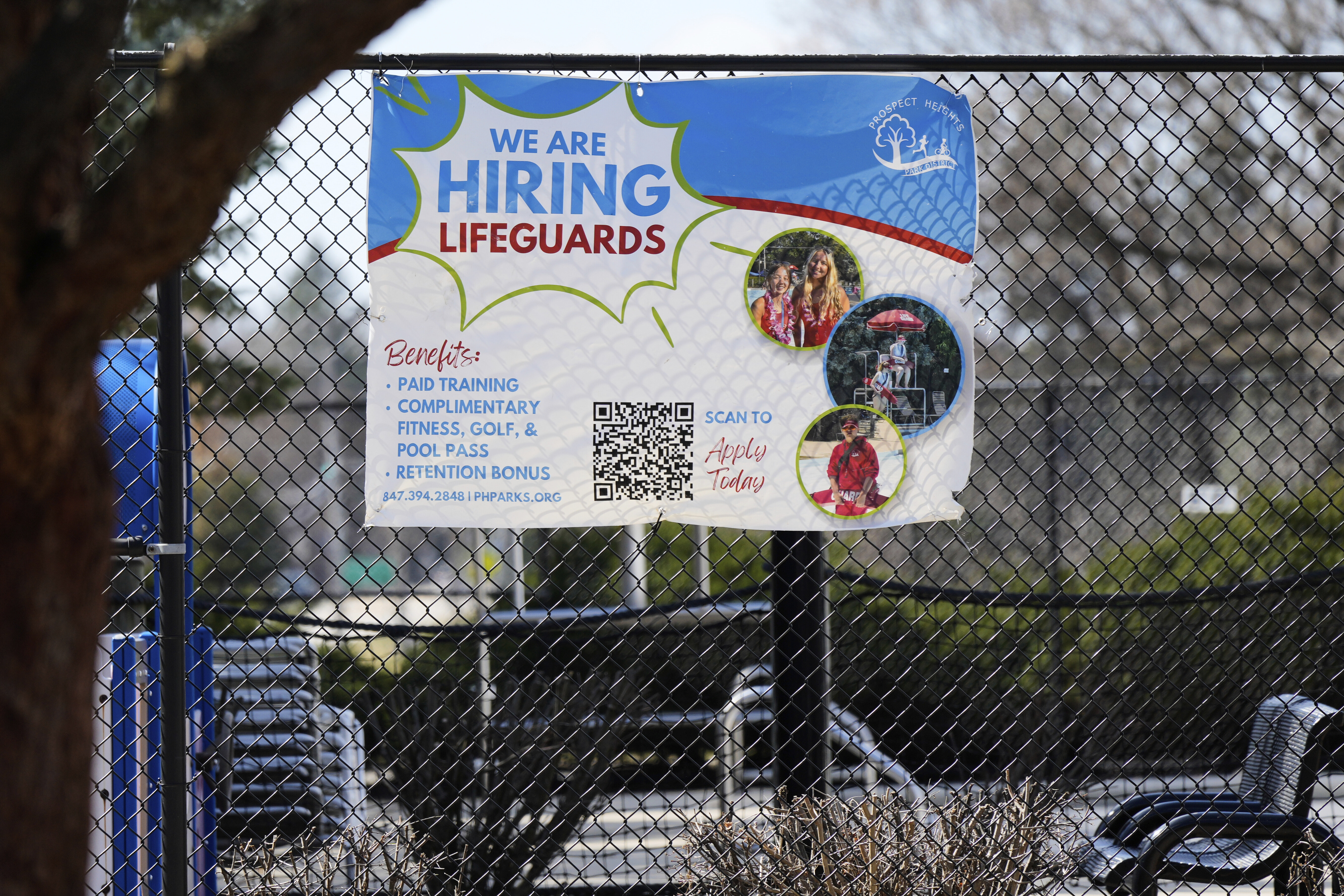Jobless Benefits Rise: Labor Market Strength Deceptive?
Jobless Claims Inch Up: Is the Labor Market Really That Strong?
Introduction: A Tightrope Walk for the US Economy
Okay, let's talk about the economy. It feels like we've been holding our breath for months, bracing for that big economic downturn everyone keeps talking about. We keep hearing about potential layoffs, companies tightening their belts, and the dreaded "R" word (recession) lurking around the corner. But then we get news like this: U.S. applications for jobless benefits rose *modestly* last week. Modestly? What does that even mean in the grand scheme of things?
In short, it suggests businesses are still clinging to their employees, even with all the economic uncertainty swirling around. But is it a sign of true strength, or just a calm before the storm? Let’s dive into the numbers and see what's *really* going on.
The Numbers Don't Lie (But They Can Be Misleading)
Jobless Claims Tick Up Slightly
The Labor Department dropped the news: Jobless claim applications inched up by 6,000 to 222,000 for the week ending April 19. That’s a slight bump, but only *slightly* above the 220,000 that analysts were expecting. It's like ordering a small coffee and getting a slightly larger small coffee – not a huge deal, but noticeable.
A Healthy Range?
Here's the kicker: Weekly applications for jobless benefits are generally considered a proxy for layoffs. For the past few years, they've mostly hovered in a "healthy" range between 200,000 and 250,000. So, 222,000 isn't exactly a cause for alarm. It suggests that, on the whole, companies aren’t slashing jobs left and right.
Why Aren't Companies Laying People Off?
The Ghost of Labor Shortages Past
Remember the Great Resignation? The pandemic-era mass exodus of workers left many businesses scrambling to fill positions. That experience is still fresh in their minds. Companies are probably hesitant to let go of good employees, fearing they’ll be tough to replace if (or when) the economy bounces back. It’s better to hold on tight than regret letting talent walk out the door.
Investment in Human Capital
Training employees is expensive. Finding new ones is even more so. Many businesses have invested significant resources in developing their workforce. Letting those employees go would be like throwing money down the drain. So, they're more likely to try to weather the storm, hoping things will improve.
Future Growth Predictions
While recession fears are prevalent, many companies are still optimistic about long-term growth. They might believe that a temporary slowdown is just that – temporary. They may also be investing in new projects and initiatives that they’ll need a workforce for in the future. Layoffs may then impact long-term innovation and production.
The Underlying Concerns: Is a Downturn Still Looming?
The Lagging Indicator Effect
Here's the thing about economic indicators: some are leading indicators (predicting future trends), while others are lagging indicators (reflecting past performance). Jobless claims are often considered a lagging indicator. This means they might not reflect the most up-to-date economic conditions. The economy could be weakening behind the scenes, and we might not see the full impact on job numbers for several weeks or months. Think of it like a slow-motion car crash – you see it coming, but it takes time for the damage to unfold.
Interest Rate Hikes and Their Impact
The Federal Reserve has been aggressively raising interest rates to combat inflation. While that *might* be working, it also increases borrowing costs for businesses. That can lead to reduced investment, slower growth, and eventually, layoffs. The full effects of these rate hikes haven't fully materialized yet, but we can be sure the cumulative result will take shape over time.
Geopolitical Uncertainty
Let’s not forget the global picture. Geopolitical tensions, supply chain disruptions, and international conflicts all add to the economic uncertainty. These factors can impact business confidence and investment decisions, indirectly influencing hiring and firing decisions.
Looking Beyond the Headline: What Else Matters?
Long-Term Unemployment
While initial jobless claims are important, it's also crucial to look at long-term unemployment numbers. How many people are staying unemployed for extended periods? A low initial claims number doesn't tell the whole story if people are struggling to find new jobs after being laid off.
The Quality of Jobs Available
Are the available jobs good-paying, stable positions with benefits? Or are they low-wage, part-time gigs with limited opportunities for advancement? The quality of jobs matters just as much as the quantity. A labor market with an excess of poor jobs is no good.
Industry-Specific Trends
Some industries might be thriving while others are struggling. Looking at industry-specific data can provide a more nuanced picture of the labor market. For example, the tech industry has been facing significant layoffs, while the healthcare sector remains relatively robust.
The Consumer Confidence Conundrum
Spending Habits and Economic Outlook
Consumer spending drives a significant portion of the U.S. economy. If consumers are confident and spending money, businesses are more likely to hire. But if consumer confidence is low, and people are tightening their purse strings, businesses may be more cautious about hiring. After all, consumer confidence can directly affect production.
Inflation and Purchasing Power
Inflation erodes purchasing power. If prices are rising faster than wages, consumers have less money to spend. That can lead to a slowdown in economic activity and ultimately affect the labor market.
Is the Labor Market Really That Strong? A Reality Check
A Glass Half Full or Half Empty?
So, is the labor market really as strong as the initial jobless claims numbers suggest? It’s complicated. On the one hand, the fact that companies aren’t laying off workers en masse is a positive sign. On the other hand, there are plenty of underlying concerns that suggest a potential downturn is still very much a possibility. It’s like looking at a glass of water – is it half full or half empty? It depends on your perspective.
The Importance of Staying Informed
The economic landscape is constantly evolving. It's crucial to stay informed about the latest data, trends, and expert opinions to make informed decisions about your finances and career. Don't rely solely on headline numbers. Dig deeper, consider multiple perspectives, and stay vigilant.
Conclusion: Navigating Uncertainty
The slight uptick in jobless claims serves as a reminder that the U.S. economy is walking a tightrope. While the labor market appears resilient for now, numerous factors could trigger a downturn. Stay informed, be prepared, and remember that economic forecasting is more art than science. Focus on your skills and career. The future of the market is as unpredictable as the weather.
Frequently Asked Questions
- What does it mean when jobless claims "inch up"?
When jobless claims "inch up," it means there's been a slight increase in the number of people filing for unemployment benefits compared to the previous week. It's a small change, but worth noting.
- Why is the labor market still strong despite recession fears?
Several reasons: companies remember labor shortages, they've invested in training, and some still anticipate future growth. They are hedging their bets by retaining employees, even if a slowdown is imminent.
- Are jobless claims a reliable indicator of economic health?
Jobless claims offer a snapshot, but they're a lagging indicator. They reflect past conditions more than predicting future ones. Other factors like consumer spending, inflation, and interest rates also play a role.
- What industries are currently experiencing the most layoffs?
The tech industry has seen significant layoffs recently. However, other sectors like retail and manufacturing can also be affected by economic downturns.
- How can I prepare for a potential economic downturn?
Build an emergency fund, pay down debt, update your resume, and network. Having a financial cushion and marketable skills can help you weather any economic storm.








